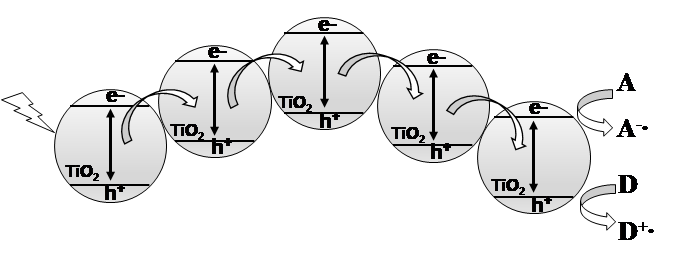
Published 2019-12-16
Keywords
- Energy transfer,
- Heterogeneous photocatalysis,
- Green chemistry
How to Cite
Abstract
Electron transfer reactions constitute one of the main pillars of chemistry and numerous examples can be found in nature and in technological applications. Energy transfer induced reactions are more elusive but equally important in phenomena related with natural photosynthesis and in general when light-matter interactions are relevant.
Heterogeneous photocatalysis is generally considered based on electron transfer reactions. In fact, absorption of photons of suitable energy induces formation of photogenerated charges (electron and holes) which in turn initiate redox reactions through interfacial electron transfer to (or from) surface species. However, rare examples of photocatalytic reactions induced by prevailing energy transfer have been recently reported in literature. Investigation in this field may be still defined at a nascent level, and the mechanistic aspects of energy transfer, widely investigated in photochemistry of homogeneous or colloidal systems should be clarified in heterogeneous photocatalysis.
In the manuscript the basic principles of energy transfer will be presented along with some known examples. These concepts will be inferred in the field of heterogeneous photocatalysis, by considering the excited solid semiconductor as the energy donor. Some rare examples of energy transfer induced heterogeneous photocatalytic reactions will be presented along with some tentative mechanistic hypotheses.




